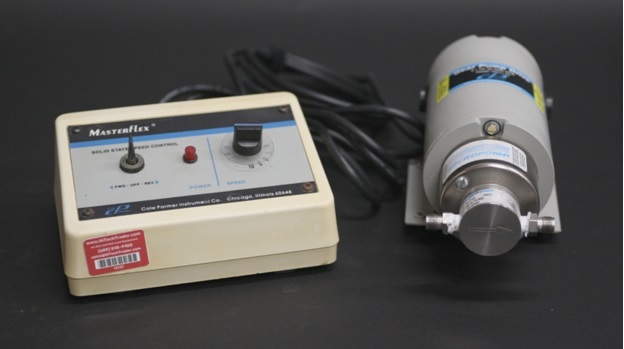A Guide to Controllers and Temperature Control
10th Sep 2024

When it comes to running a lab, precision isn’t just important—it’s everything. If you’ve ever struggled with inconsistent results or unreliable equipment, you know the frustration of not having the right tools at your disposal. The good news? There’s a solution that can make your life a whole lot easier. In this post, we’ll dive into how controllers and temperature controllers can transform your lab work, ensuring everything from stirring to fluid transfer runs smoothly and accurately. We’ll also explore the best options for achieving the control and reliability your experiments demand.
Why Controllers Matter in Magnetic Stirring
If you’ve ever watched a magnetic stirrer in action, you know it’s like the unsung hero of the lab—quietly working away to keep your mixtures consistent. But not all stirrers are created equal. For those times when precision is key (and when isn’t it?), the H+P Variomag Telemodul 40 S Controller is your best friend. Designed specifically for magnetic stirring applications, it ensures your solution stays uniformly mixed, every single time.
So, when do you really need this level of control? Anytime you’re dealing with reactions that require steady agitation, like in titrations or when synthesizing new compounds. You don’t want your reaction to be a hit-or-miss affair, right? With the Talboys 10x10 ALU Hot/Stir 120V Pro, you can fine-tune every stir to perfection, keeping all your variables in check.
Keep the Flow Going with Dependable Solutions
In any lab, transferring fluids is more than just moving liquids from one place to another. It’s about precision and reliability—after all, no one wants a spill or an inconsistent flow rate messing up their work. Enter the Cole-Parmer MasterFlex Solid State Speed Controller. This device offers a rock-solid solution for fluid transfer applications, ensuring that every drop goes exactly where it’s supposed to.
But when do you need this kind of dependability?
Think of times when you’re working with delicate or hazardous materials, where even the slightest mishap could spell disaster. Or when the volume of liquid being transferred needs to be spot-on. In these situations, a reliable speed controller is a must-have, making sure your fluid transfers are as smooth as possible.
The Key to Consistent Results
Temperature control is like the heartbeat of many lab processes—get it right, and everything falls into place. But get it wrong, and well… things can get a little heated. That’s why having an unparalleled temperature controller is so important.
Take the Glas-Col Mantle Minder II, for example. It offers top-notch temperature control and monitoring capabilities, perfect for those moments when you need to keep things just right. Whether you’re working on distillation, incubation, or any other process where temperature is key, this device has your back.
Getting to Know Temperature Controllers
Let’s break it down—keeping a stable temperature in the lab is crucial, whether you’re heating, cooling, or doing both. That’s where temperature controllers come in. There are two main types: open loop and closed loop.
Open loop is the simpler of the two. Think of it like setting your car’s heater to full blast on a cold morning. It’ll keep heating without any regard for how warm it gets inside.
This might work for a while, but as the day warms up, you could end up sweltering. It’s basic and doesn’t adjust based on what’s actually happening with the temperature.
A closed loop, on the other hand, is all about precision. It constantly checks the actual temperature and makes adjustments to keep things just right.
Imagine setting your car’s climate control to 75°F—whether it’s hot or cold outside, the system automatically heats or cools to maintain that exact temperature. In the lab, this level of control is non-negotiable. Whether you’re carefully heating a reaction or cooling a sample to just the right degree, closed-loop control ensures you stay on target without overshooting or falling short.
The difference is clear: while an open loop might get you in the ballpark, a closed loop makes sure you hit the exact mark every time.
Finding the Right Tools
When it comes to setting up your lab or upgrading your gear, choosing the right equipment can be a bit overwhelming. But with the right guide to chemistry laboratory equipment, you can find affordable alternatives for researchers and scientists without sacrificing quality. Whether you’re on the hunt for controllers or temperature controllers, knowing what to look for and where to find it can save you time, money, and a whole lot of frustration.
For those in the market for new gear, remember that reliable distributors of laboratory equipment are key to ensuring you get the best tools for the job. The right equipment not only enhances your lab’s precision but also makes your day-to-day operations that much easier
